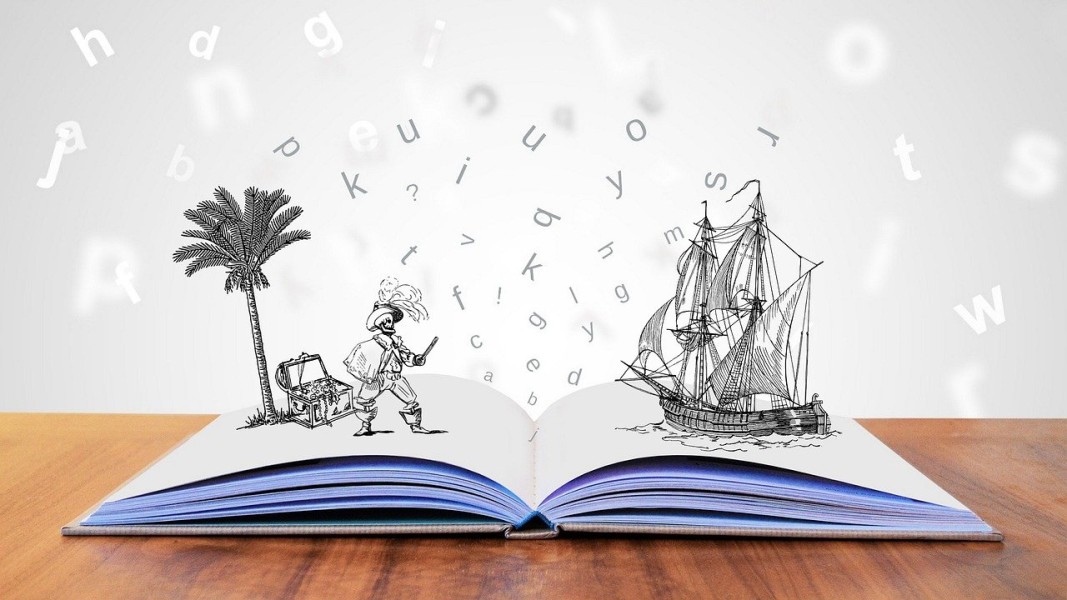One in five Bulgarians has not read a single book in the past year, indicates a national survey on reading attitudes among Bulgarian citizens of different age groups conducted by the Bulgarian Book Association. One more worrying fact is that many of the respondents do not have a single book at home. The survey shows that people aged 40 to 65 are the most active readers, and that interest in reading is lowest with people in the 15 to 30 age bracket, a tendency registered by the previous survey by the Association conducted in 2019 as well. Experts say the reason should be sought in a heightened interest in watching TV shows and googling all kinds of non-fiction information.

“It is a world tendency. In Germany, for example, in 2017 it was established that reading was going down, though for people of the 44 to 54 age bracket. And the reason for this is that in Germany, a nation with some of the highest reading levels in the world, there is a very solid state policy to encourage reading among the young,” Desislava Alexieva, President of the Bulgarian Book Association explains. “The conclusion we can draw from the survey is that if we do not take steps for the long term, Bulgarians risk becoming a non-reading nation permanently. We believe action must be taken to reverse the negative tendencies. Modern technologies are not our enemy, they are not going to go away. I do not believe we should perceive reading and modern technologies as some kind of rivalry because books give us something that is very different. It is beyond any doubt that reading nations are much more prosperous economically. There is a report from last year which says that if negative reading tendencies are changed, if literacy of the population in Bulgaria is boosted, then the country’s GDP could quadruple. That means that by investing in reading, in literacy we are investing in the future.”

In recent years we have seen a surge in the sales of children’s literature, which leads to an optimistic result - that 83% of the respondents who are parents say they read to their children.

“To read books you need to have had someone to encourage you to do so from a very early age. A role model,” a young man from Vidin says in BNR-Vidin’s vox-pop.
“I think that the desire to be educated has waned overall,” an older man says. “Young people read less because they are constantly online. People who are older read more books. I myself buy books, and I prefer new authors – they have a more modern kind of thinking and I find that more interesting.”

The high prices of books in Bulgaria prompt many people to go back to public libraries, says Petar Petrov who works at the Hristo Botev regional library in Vratsa. His greatest pleasure, he adds, is to be able to offer readers the title they are looking for, especially if it is something classic or an award-wining book from countries not well known in terms of literature, and rarely translated like Serbia or Greece. But that is the most difficult thing, he admits, because “funding is scarce, we cannot afford to buy new books, and there are many books we do not have at the library.”
“Interest is highest at the moment in biographies and autobiographies, most of all of famous Bulgarians. Readers also have a taste for Bulgarian writers, whose books are well worth reading – Georgi Bardarov, Georgi Gospodinov, Milen Ruskov, Maria Laleva. Teenagers are interested mostly in world fantasy,” Petar Petrov says.

His work has lead him to conclude that reading is becoming an elitist pastime in this country, especially among the young.“The few children who are open to the world do read, the rest are going to acquire random bits of knowledge from social media and the internet,” the librarian says.
Interviews by Plamen Kotsev, BNR-Vidin
Text Vessela Krasteva
Photos: PixabayWith a concert by the Slavey Quartet created by folk singer Nadka Karadzhova and a conversation about the problems of our compatriots in the Western Outlands, the Cultural and Information Center of the Bulgarian Minority in..
Athens is under pressure to sell fighter jets that would be delivered to Ukraine Greece is reluctant to provide high-tech military equipment that could be used against Russia, reports BNR’s correspondent in Greece Katya Peeva...
A clay pot and a wooden bucket from the village of Momchilovtsi are part of an exhibition at the Milk Museum, which has just opened in Shanghai , the village's mayor, Siika Surkova, told the Bulgarian news agency BTA. Representatives of the..
A clay pot and a wooden bucket from the village of Momchilovtsi are part of an exhibition at the Milk Museum, which has just opened in Shanghai , the..
Athens is under pressure to sell fighter jets that would be delivered to Ukraine Greece is reluctant to provide high-tech military..
With a concert by the Slavey Quartet created by folk singer Nadka Karadzhova and a conversation about the problems of our compatriots..

+359 2 9336 661
